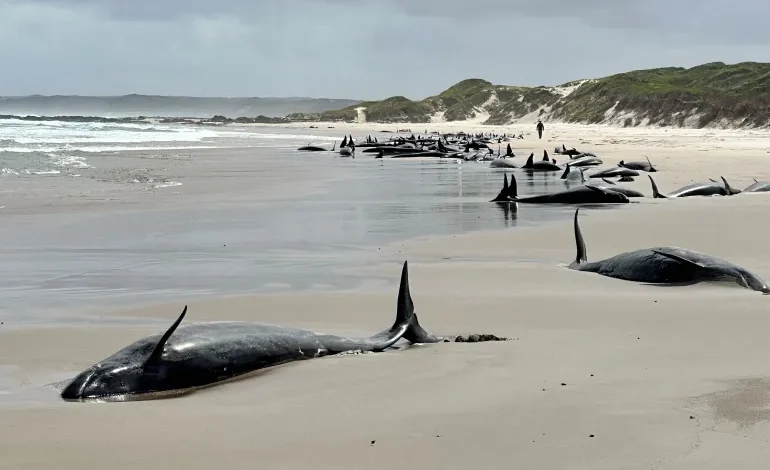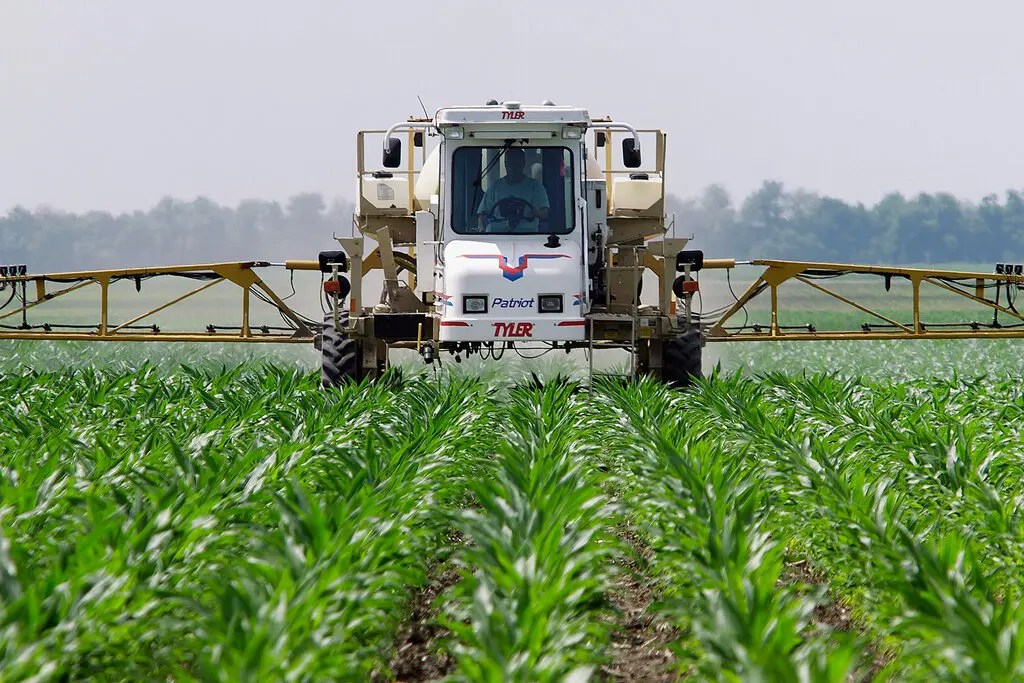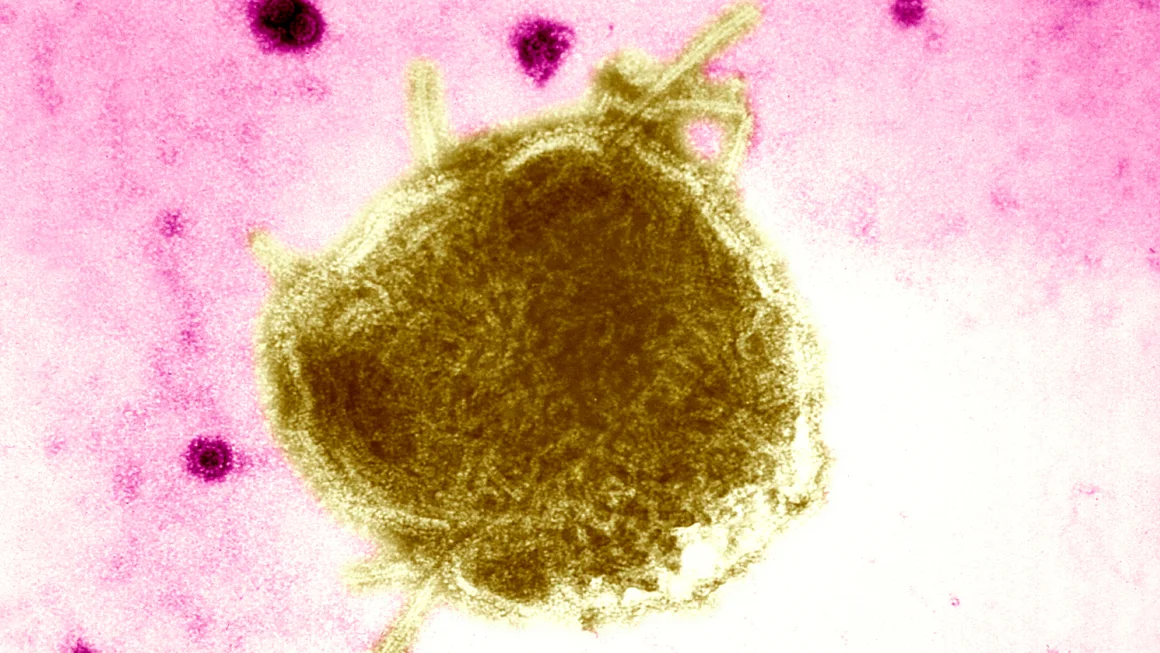Mass Stranding: Over 150 False Killer Whales Beach Themselves in Australia

A mass stranding event has left over 150 false killer whales stranded on a remote beach near Arthur River in northwest Tasmania, prompting a frantic rescue effort by Australian environment officials, Al Jazeera reports.
The Department of Natural Resources and Environment confirmed the mass beaching on Wednesday, stating that marine experts are on-site assessing the situation. As of the latest reports, approximately 90 of the 157 beached whales were still alive.
“They’ve been stranded now for, we estimate, 24 to 48 hours,” said Brendon Clark, a liaison officer at the Tasmania Parks and Wildlife Service, during a news conference.
Authorities are currently evaluating the feasibility of refloating any of the surviving whales. The remote location of the beach, coupled with challenging ocean conditions and the logistical hurdles of transporting specialized rescue equipment, are complicating the rescue operation.
False killer whales are an endangered species of oceanic dolphin that bear a resemblance to killer whales. They can grow up to 20 feet in length and weigh between 500kg (1,100 pounds) and 3 metric tonnes (6,600 pounds).
According to Clark, this is the first stranding of false killer whales in Tasmania since 1974, when a pod of more than 160 individuals beached themselves near Stanley on the island’s northwest coast.
The cause of the mass stranding remains unknown. Clark declined to speculate but stated that the carcasses will be examined for clues. Possible causes for whale strandings include disorientation, illness, old age, injury, fleeing predators, and severe weather conditions.
The state’s environment department issued a warning to the public, reminding them that “all whales are protected species, even once deceased, and it is an offence to interfere with a carcass.”







